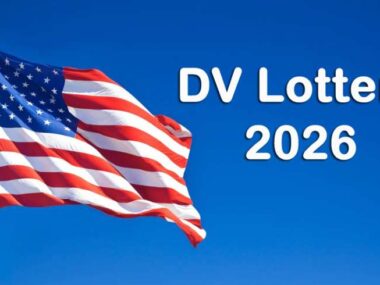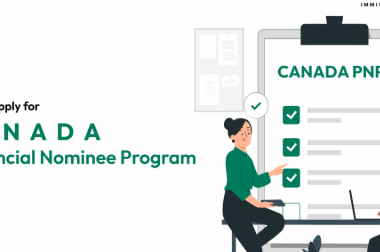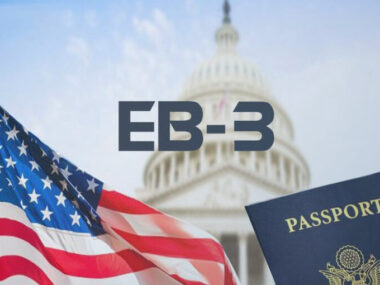Canada’s thriving café culture and growing hospitality sector make barista jobs a viable entry point for foreign workers, with salaries ranging from CAD 16 to CAD 22 per hour. With visa sponsorship available due to labor shortages, this guide outlines the steps to become a barista, visa options, and practical tips for securing a job in 2026, using government-verified resources.
Why Barista Jobs Are In-Demand
Canada’s coffee industry, driven by chains like Tim Hortons and Starbucks alongside independent cafés, employs thousands in urban centers like Toronto, Vancouver, and Montreal. Barista roles, classified under NOC 65201 (food counter attendants, kitchen helpers, and related support occupations), are in high demand due to high turnover and a shortage of local workers.
Employers often struggle to retain workers in these entry-level roles, leading to increased opportunities for foreign applicants. This shortage prompts employers to seek international candidates and offer visa sponsorship through programs such as the Temporary Foreign Worker Program (TFWP).
In addition, Canada’s café sector is projected to grow steadily by 6% before 2030, meaning that more openings will continue to emerge each year.
Key Responsibilities of a Barista
Baristas perform a range of daily duties in coffee shops, restaurants, or hotels, including:
- Preparing espresso-based drinks, teas, and specialty beverages.
- Operating coffee machines, grinders, and brewing equipment.
- Providing excellent customer service and handling customer orders efficiently.
- Maintaining a clean and organized workspace.
- Managing cash transactions and inventory.
- Ensuring food safety standards are met.
- Supporting café promotions or seasonal drink menus.
These roles require strong communication, multitasking, and customer service skills. Most employers provide on-the-job training, meaning prior professional coffee-making experience is helpful but not mandatory.
Eligibility Requirements
To qualify for barista jobs with visa sponsorship, foreign applicants must meet the following criteria:
- Experience: 0–2 years of experience in customer service, retail, or hospitality is preferred but not always required. Previous café or restaurant work can give applicants a competitive edge.
- Skills: Basic proficiency in English or French to communicate with customers. Barista skills such as operating espresso machines, grinding coffee beans, or latte art are an advantage but not compulsory.
- Education: No specific educational qualifications are required. A high school diploma or equivalent may be preferred by some employers.
- Health and Character: A clean criminal record and medical clearance are necessary for visa approval.
- Job Offer: A valid job offer from a Canadian employer is essential, especially when applying for LMIA-supported visas under the TFWP.
Applicants are encouraged to improve soft skills such as teamwork, punctuality, and adaptability. These qualities are highly valued in Canada’s hospitality industry.
Visa Options for Barista Jobs
Foreign nationals need a valid work permit to work as baristas in Canada. The main pathways include:
- Temporary Foreign Worker Program (TFWP): The most common option for barista jobs. Employers must secure a Labour Market Impact Assessment (LMIA) showing that no Canadian worker is available for the position. Work permits are typically valid for 1–2 years. Learn more on the Government of Canada’s Temporary Foreign Worker Program page.
- International Mobility Program (IMP): Does not require an LMIA. Certain agreements, such as intra-company transfers or youth mobility agreements, allow applicants to work in Canada more flexibly.
- Working Holiday Visa (International Experience Canada – IEC): Available for citizens of 35+ countries aged 18–35. This open work permit allows applicants to work for any employer, including cafés, for up to two years. Check eligibility on the official IEC program page.
- Provincial Nominee Programs (PNPs): Some provinces, such as British Columbia and Manitoba, include hospitality roles under streams that can lead to permanent residency.
Application Process for Barista Jobs
Securing a barista position with visa sponsorship involves several steps:
- Research Opportunities: Use verified job portals such as Canada Job Bank to find listings. Search specifically for employers mentioning visa sponsorship or LMIA approval. Major chains like Starbucks, Tim Hortons, and Second Cup frequently advertise roles across Canada.
- Prepare Documents: Create a Canadian-style CV (1–2 pages) and a tailored cover letter. Highlight customer service experience, availability for flexible shifts, and interest in coffee culture.
- Apply for Jobs: Submit applications via online portals or directly through company career pages. Walk-in applications at independent cafés can also work, especially in urban centers.
- Interview: Employers look for strong interpersonal skills, a friendly personality, and enthusiasm for coffee. Be prepared to answer customer service scenario questions and demonstrate basic barista knowledge.
- Job Offer & LMIA: If selected, the employer will issue a job offer and may apply for an LMIA (if required). This step is critical for visa approval under the TFWP.
- Work Permit Application: Apply online through the Immigration, Refugees, and Citizenship Canada (IRCC) portal. Submit your passport, job offer, LMIA (if required), police certificate, and medical exam results.
- Arrival and Registration: Once approved, travel to Canada, apply for a Social Insurance Number (SIN), and register with provincial health insurance if eligible.
Training and Skill Development
While barista jobs often provide on-the-job training, candidates who invest in learning coffee skills can stand out. Options include:
- On-the-Job Training: Employers train workers in espresso preparation, milk steaming, and customer service protocols.
- Barista Courses: Short certification programs (e.g., Canadian Barista Institute) cost between CAD 200–500. These courses cover brewing techniques, latte art, and coffee roasting basics.
- Food Safety Certification: Completing FOODSAFE Level 1 ensures compliance with Canadian health regulations and boosts employability.
- Practice at Home: Learning basic brewing methods (pour-over, French press, or Aeropress) can build confidence before employment.
Tips for Success
- Target Urban Hubs: Toronto, Vancouver, Calgary, and Montreal offer the highest demand for baristas.
- Learn Basic French: This is especially valuable for barista roles in Quebec.
- Network Effectively: Visit cafés in person, introduce yourself, and drop off résumés to managers.
- Verify Employers: Always ensure employers are LMIA-approved via ESDC to avoid fraudulent offers.
- Maximize Earnings: Take advantage of customer tips, which can add CAD 2–5 per hour to base pay.
Benefits of Barista Jobs
- Competitive Pay: CAD 16–22/hour, plus tips.
- Visa Sponsorship: Employers may cover LMIA processing fees.
- Flexible Schedules: Ideal for students or workers balancing other commitments.
- Career Progression: Experience as a barista can lead to café supervisor or manager roles.
- Pathway to Residency: Work experience can contribute toward eligibility for the Canadian Experience Class (CEC) for permanent residency.
Statistics on Barista Jobs
Job Vacancies
As of 2025, Canada reported over 3,500 barista job openings. Around 20% included visa sponsorship, concentrated in Ontario and British Columbia.
Salary Ranges
- Entry-Level Barista: CAD 16–18/hour
- Experienced Barista: CAD 18–22/hour
- Tips: CAD 2–5/hour additional
Visa Processing Times
- TFWP permits: 2–6 months
- IEC permits: 4–8 weeks
Demand Growth
Barista jobs are expected to grow by 6% by 2030, reflecting Canada’s expanding café culture and consumer demand.


